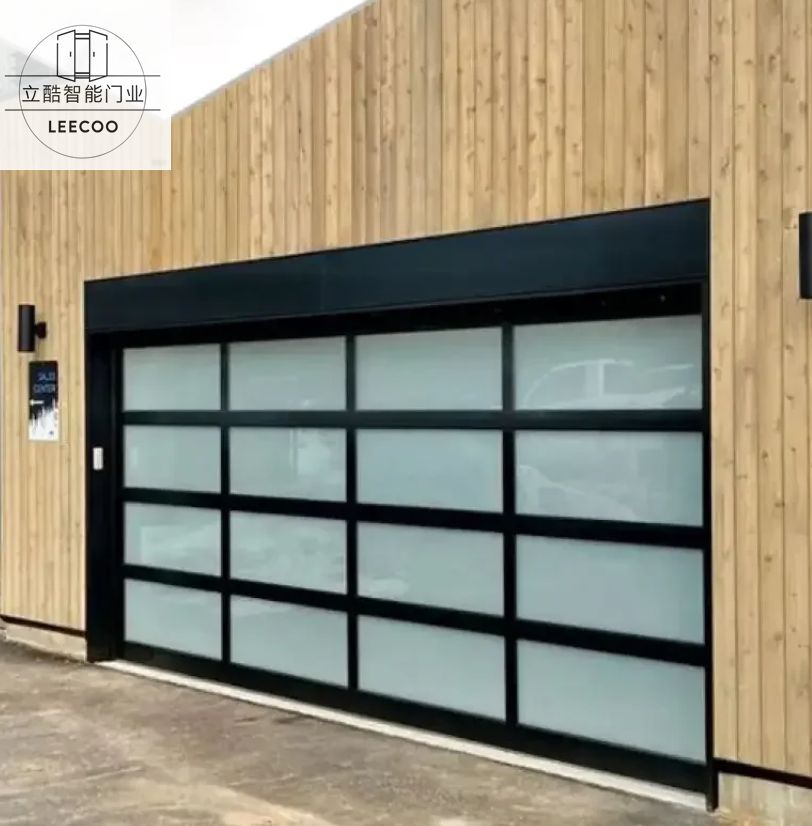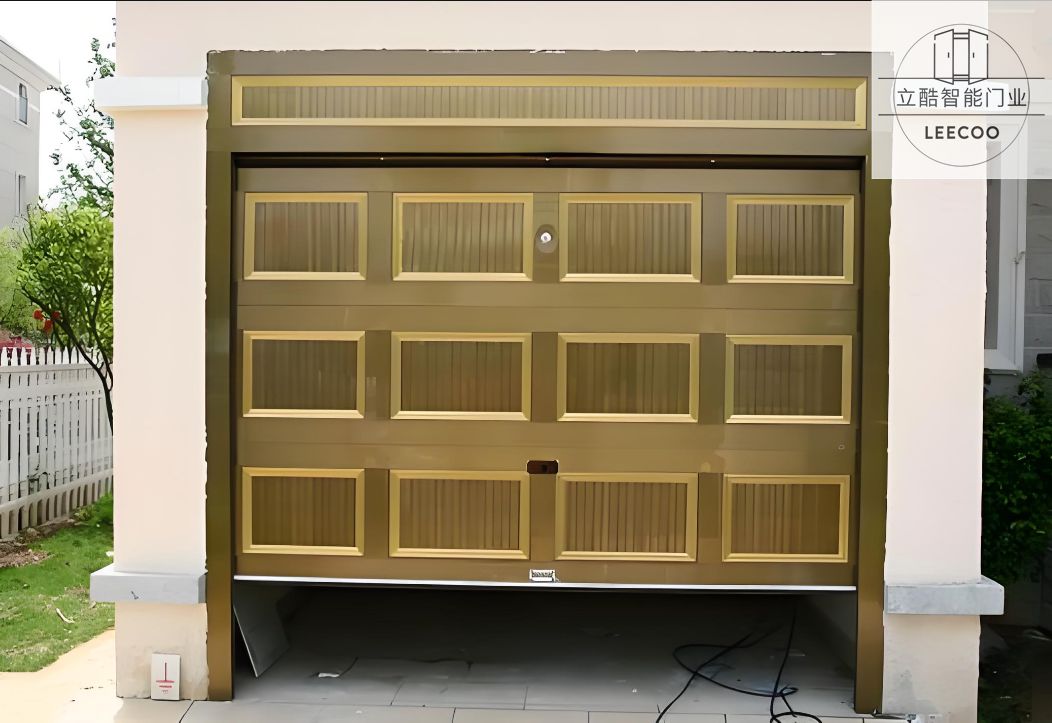Roll-up garage doors, commonly referred to as sectional garage doors due to their segmented design, are a popular choice for residential and commercial properties. These doors operate by moving vertically along tracks and folding into horizontal sections when opened, offering a space-efficient and reliable solution for garage access. When considering a roll-up garage door, homeowners and business owners often ask: What materials are available? And how durable are they? Let’s explore these questions in detail.

Roll-up garage doors are manufactured using various materials, each offering unique advantages in terms of aesthetics, cost, and performance. The most common materials include:
Steel:
Steel is the most widely used material for roll-up garage doors due to its strength, affordability, and versatility. It can be coated with paint, vinyl, or a baked-enamel finish to enhance durability and appearance.
Pros: High strength, low maintenance, cost-effective, and available in numerous colors and styles.
Cons: Prone to dents if impacted by heavy objects.
Aluminum:
Aluminum doors are lightweight, corrosion-resistant, and ideal for coastal areas or humid climates. They are lighter than steel doors but may offer less impact resistance.
Pros: Lightweight, rust-resistant, and available in modern designs.
Cons: Easier to dent and generally more expensive than steel for comparable sizes.
Wood:
Wooden garage doors provide a classic, elegant look and can be customized with various stains, paints, or carvings. Common wood types include cedar, redwood, and mahogany.
Pros: Natural beauty, high insulation value, and customizable.
Cons: Requires regular maintenance (staining/sealing), susceptible to warping, and more expensive.
Fiberglass:
Fiberglass doors are lightweight, resistant to corrosion, and can mimic the look of wood. They are often filled with foam insulation for enhanced energy efficiency.
Pros: Low maintenance, lightweight, and good insulation.
Cons: Can crack under extreme impact and may fade over time in direct sunlight.
Composite Materials:
Some doors combine multiple materials (e.g., steel frames with composite panels) to balance strength and aesthetics.
Pros: Combines benefits of different materials (e.g., durability of steel with wood-like appearance).
Cons: Typically more expensive than single-material doors.
The durability of a roll-up garage door depends on several factors, including material quality, construction, maintenance, and environmental conditions. Here’s how different materials perform in terms of longevity:
Steel: Highly durable with proper maintenance. A 24-gauge steel door can last 15–20 years or more with regular care. Galvanized or stainless steel options offer superior rust resistance.
Aluminum: Extremely durable in coastal areas due to corrosion resistance, but may dent more easily than steel. Lifespan typically 15–20 years with minimal upkeep.
Wood: Requires more maintenance but can last 20–30 years if properly sealed and protected from moisture. Susceptible to insect damage and rot if neglected.
Fiberglass: Highly durable against weather but may crack under extreme impact. Lifespan of 15–25 years, depending on climate and usage.
Composite Materials: Generally durable and low-maintenance, with lifespans comparable to steel (15–20+ years) due to engineered resilience.
Material Quality: Higher-grade materials (e.g., 24-gauge steel vs. 28-gauge) offer better strength and longevity.
Construction: Reinforced tracks, heavy-duty springs, and weatherstripping enhance durability and insulation.
Maintenance: Regular lubrication, inspection of springs/cables, and timely repair of minor damages prevent premature wear.
Environment: Coastal areas may require aluminum or stainless steel to resist salt corrosion, while cold climates benefit from insulated doors.
Usage: Commercial doors (higher frequency) may wear faster than residential ones.

Roll-up garage doors are available in a range of materials, each suited to different needs and environments. Steel doors offer the best balance of durability, cost, and maintenance, while aluminum, wood, fiberglass, and composites cater to specific preferences (e.g., aesthetics, insulation, or corrosion resistance). By selecting the right material and maintaining the door properly, homeowners and businesses can ensure their garage doors remain functional and visually appealing for decades. Regular inspections, lubrication, and timely repairs are key to maximizing lifespan, regardless of the material chosen.
Contact:陈明龙
Phone:19200497706
Tel:19200497706
Email:shally79@sina.com
Add:佛山市南海区桂城街道夏东涌口村工业区石龙北路北区一横路5号